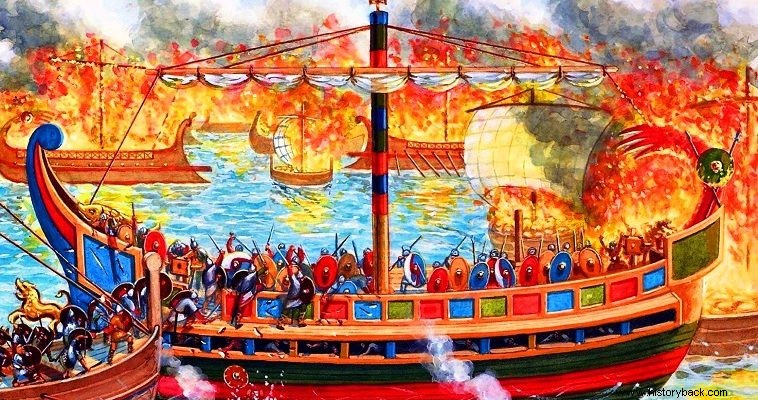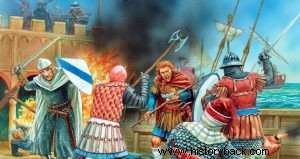
Since 1204 when the miserable "Crusaders" of the Fourth Crusade occupied the city and like other crusaders distributed the robes of the Byzantine Empire, there has not been a moment of peace on the Greek peninsula. After the recovery of Constantinople, the new Greek, as the Latins also called him, Emperor Michael VIII Palaiologos, tried to resurrect the wounded empire.
The naval battle-battle of Demetriada is included in this context. In 1272/73 or according to other sources in (more likely) 1274/75 the emperor sent his forces against the Greek lord of Thessaly John Duke who had allied himself with the Latins . In the battle of New Patras (today's Ypati Fthiotidos) the Byzantine army was defeated. At the same time, Michael Palaiologos had sent his fleet to the Thessalian coast to support the land operations.
The Byzantine fleet had over 50 ships, according to historian Nikiforos Grigoras. Western sources speak of 80 ships, but this number is verified as the Latins tended to always portray the Byzantine forces as much stronger than their own. The head of the Byzantine fleet was the experienced and brave general Alexios Doukas Philanthropinos.
The great Latin ruler of the time, Guilermos di Verona, decided to attack the fleet that had anchored in Demetriada. together with the Venetian Filippo Sanudo . The Latins had 62 ships, according to Western sources. Their ships were Lombard, di Verona who was also lord of 1/3 of Evia (Tritimorio) and Venetian, despite the fact that Byzantium and Venice were not at war.
Attack, massacre and overthrow
The Latins decided to attack the Byzantines by surprise. Their ships were stronger and "blocky" having wooden towers manned with many soldiers. So when the lighter Byzantine ships attacked, being anchored, they lost the only advantage they had, that of agility. The Latins, in their own way, turned the naval battle into a foot battle in the sea and soon gained the advantage over the Byzantines.
Victory seemed certain. But at that time Byzantine reinforcements appeared under the emperor's brother general John Palaiologos. The new arrivals boarded the Byzantine ships and retaliated against the Latins! Thus the foot battle in the sea "fired up" again. The battle continued, bloody, with fierce obstinacy all day, until night fell, but all the ships of the Latins—except two—had been put to the sword!
The Latins were mercilessly massacred by the Byzantines and among the dead was di Verona. Sanudo, luckier, was captured. It was a great victory, a great reversal for the Byzantines. After the victory, things improved more for the Empire when Michael appointed the famous Licarius as admiral. (Ikarios in the Byzantine sources).

